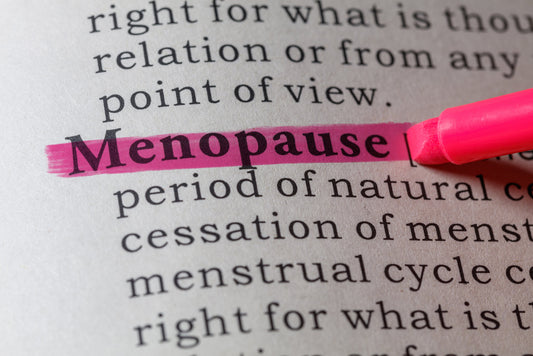The Role of Multivitamins in Women's Health
Maintaining overall health and well-being is a lifelong journey, and for women, this journey often involves navigating a variety of unique health challenges, from puberty to pregnancy, and later, menopause and beyond. One of the most effective ways to support the body during these transitions is through proper nutrition, but in today’s fast-paced world, achieving a perfectly balanced diet can be difficult. This is where multivitamins come into play.
In addition to supporting overall health, many multivitamins contain antioxidants, which help combat the oxidative stress caused by environmental factors like pollution and UV rays, as well as internal processes like aging. By neutralizing free radicals, antioxidants can support healthy skin, improve elasticity, and slow down visible signs of aging. With the right blend of nutrients, multivitamins can be a powerful tool to help maintain overall health, promote vitality, and support your body through the various stages of life.
What Are Multivitamins?
Multivitamins are supplements that combine a variety of vitamins, minerals and sometimes antioxidants in one convenient pill or powder. They are designed to fill nutritional gaps in your diet, helping to ensure that your body is getting enough of the essential nutrients it needs for proper functioning.
Commonly included vitamins in multivitamin formulas for women include:
-
Vitamin A: Supports vision and immune health.
-
Vitamin C: Boosts the immune system and promotes skin health.
-
Vitamin D: Essential for bone health and immune function.
-
B Vitamins: Help with energy production and maintaining nervous system health.
- Vitamin E: Known for its antioxidant properties, promoting skin health and reducing inflammation.
Minerals such as calcium, magnesium, and zinc are often added to multivitamins to support bone health, metabolism, and immune function.
Why Multivitamins Are Important for Women
As women go through different stages of life, their nutritional needs evolve. Nutrient deficiencies can arise at any age, but during certain periods — such as pregnancy, menopause, or perimenopause — additional support may be needed.
Multivitamins During Perimenopause and Menopause
The transition into menopause typically begins with perimenopause, which can span several years and is marked by fluctuating hormone levels. During this time, women may experience symptoms like hot flashes, night sweats, mood swings, and weight gain.
Multivitamins formulated for women often contain specific nutrients that can help alleviate some of these symptoms:
-
B Vitamins (B6, B12): Support hormonal balance and reduce mood swings, fatigue, and irritability.
-
Vitamin D: Helps maintain bone density, which can decrease during menopause due to reduced estrogen levels.
-
Calcium and Magnesium: Vital for supporting bone health and reducing the risk of osteoporosis, which increases after menopause.
-
Antioxidants (Vitamin C, E): These vitamins help combat oxidative stress, which can worsen age-related skin issues, reduce wrinkles, and improve skin elasticity.
Women in perimenopause and menopause often experience changes in metabolism, making weight management more difficult. Many women are inclined to start strict diet programs during this time, leaving some nutritional gaps that multivitamins can help fill, ensuring the body is functioning optimally despite these hormonal and dietary changes.
Antioxidants and Their Role in Women's Health
Antioxidants are powerful compounds that help neutralize harmful free radicals in the body, which can cause oxidative stress and damage cells. This is particularly important for women experiencing hormonal shifts during menopause and perimenopause.
For instance, Vitamin C is not only essential for immune health but also promotes collagen production, which helps maintain skin elasticity and reduces wrinkles. Vitamin E, another potent antioxidant, has been shown to protect the skin from damage caused by UV rays and environmental pollutants.
How to Choose the Right Multivitamin for You
With a wide variety of multivitamin products available on the market, it’s important to choose one that meets your specific needs. Here are some tips on selecting the right multivitamin:
-
Tailored for Women: Look for multivitamins designed specifically for women, as they tend to have higher levels of key nutrients like iron (for premenopausal women), calcium, magnesium, and vitamin D.
-
Consider Your Age: Your nutritional needs change as you age. Multivitamins designed for perimenopausal and menopausal women usually contain ingredients that support bone health, hormonal balance, and skin health.
-
Check the Dosage: It’s important to follow the recommended dosage to avoid taking excessive amounts of certain vitamins or minerals.
- Look for Antioxidants: If you want extra skin protection, look for multivitamins with antioxidants like Vitamin C, E and CoQ10, which can help counteract the visible effects of aging.
Benefits of Taking Multivitamins
-
Supports Immune Function: Multivitamins can help strengthen the immune system, especially during times of hormonal fluctuation when your body may be more vulnerable to illnesses.
-
Enhances Skin Health: The antioxidants in multivitamins can protect the skin from premature aging, maintain moisture, and reduce wrinkles. Vitamin A and C are particularly important for skin health.
-
Boosts Energy: The B-vitamins found in multivitamins help support energy metabolism, making you feel more energized and alert throughout the day.
-
Promotes Hormonal Balance: Key vitamins like B6 and magnesium help stabilize hormone levels, which can reduce the symptoms of perimenopause and menopause such as mood swings, hot flashes, and fatigue.
- Strengthens Bones: Calcium, magnesium, and vitamin D support bone density, which is crucial for women at risk of osteoporosis, especially after menopause.
Are Multivitamins Worth the Investment?
While it's always best to get your vitamins and minerals from a balanced diet, many women struggle to consume all the necessary nutrients from food alone. Multivitamins can be a practical solution to supplement any gaps. However, it’s important to remember that multivitamins should not replace a healthy diet but should instead work alongside it.
According to several studies, taking multivitamins may improve overall health by supporting essential body functions, though they are not a cure-all. They’re most beneficial when used to supplement a nutritious diet rich in fruits, vegetables, whole grains, and lean proteins.
Potential Risks of Multivitamins
Multivitamins can be a valuable addition to your health routine, especially as you navigate the changes that come with menopause and perimenopause. While multivitamins are generally safe when taken as directed, overconsumption of certain nutrients can be harmful. Too much vitamin A, for example, can be toxic, while excessive iron intake can cause gastrointestinal issues. Always consult with a healthcare provider before beginning any supplement regimen, especially if you have pre-existing health conditions or are taking other medications.
![]()
BEST supplements are formulated with the most effective, science-backed ingredients out there, and nothing else. No fillers, no false promises, and no B.S.
Just the right doses, delivered the right way, with results that actually matter.
Because your BEST health starts with the BEST standards. And we’re here to deliver both.
*These statements have not been evaluated by the Food and Drug Administration. This product is not intended to diagnose, treat, cure, or prevent any disease.









